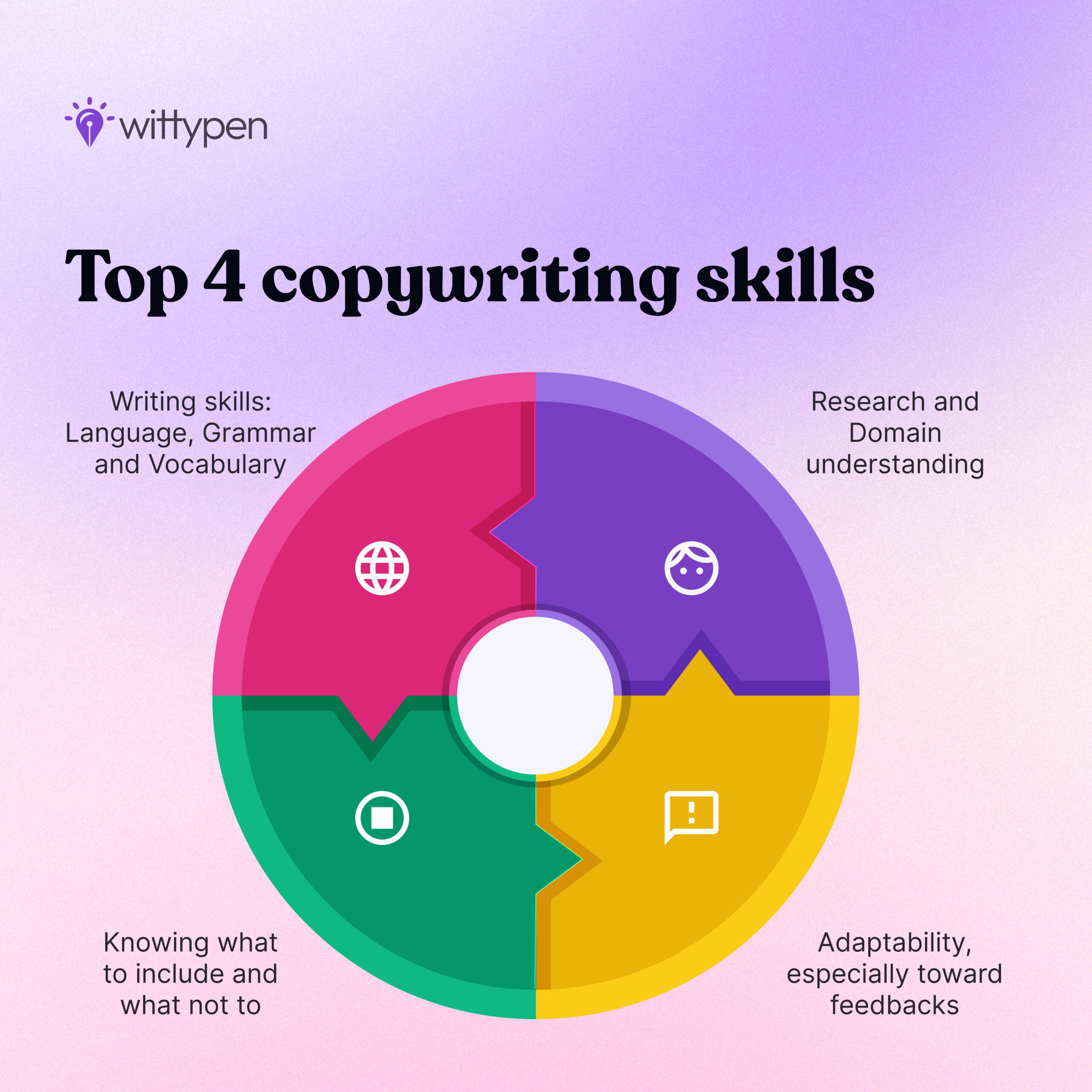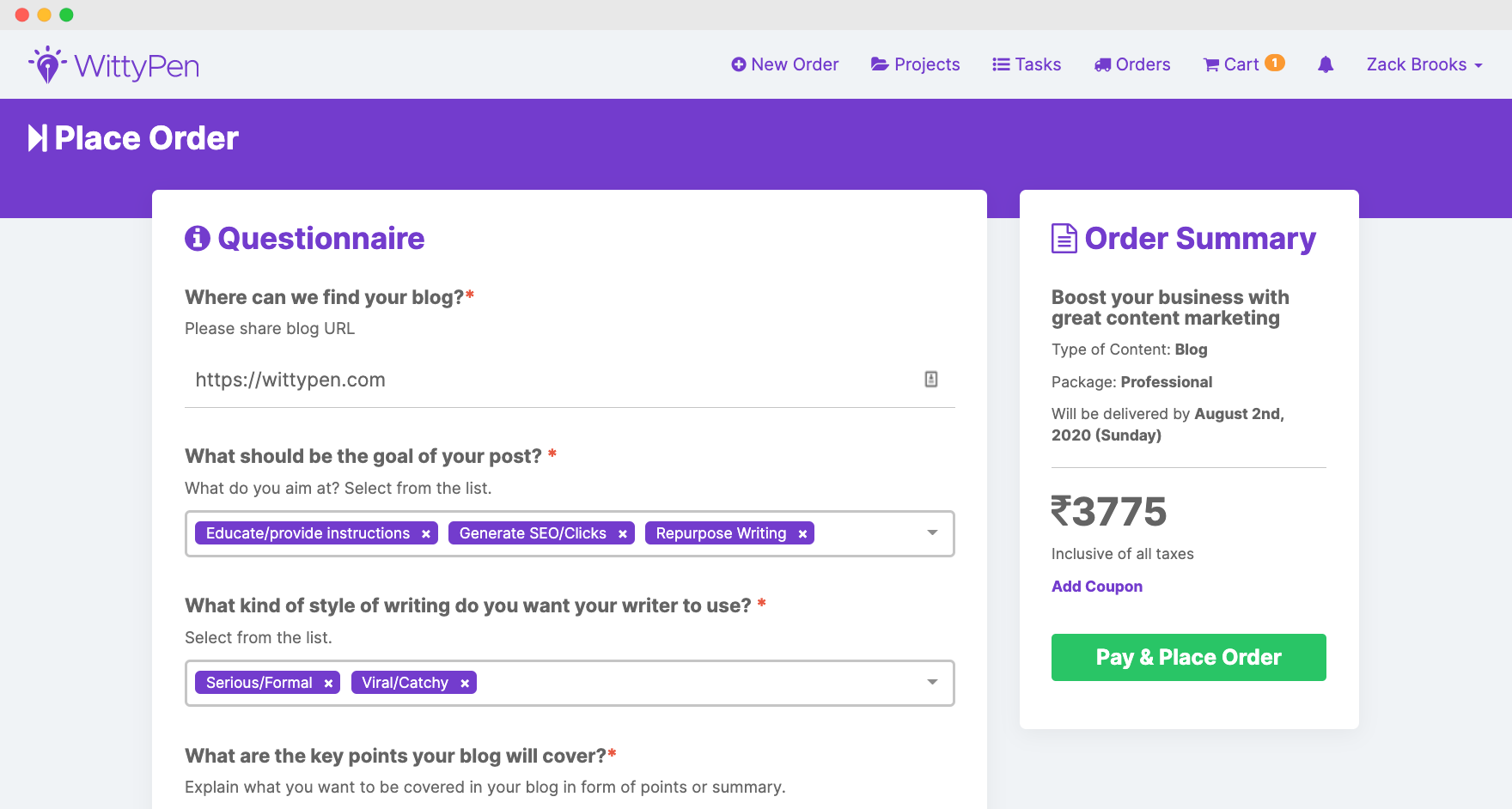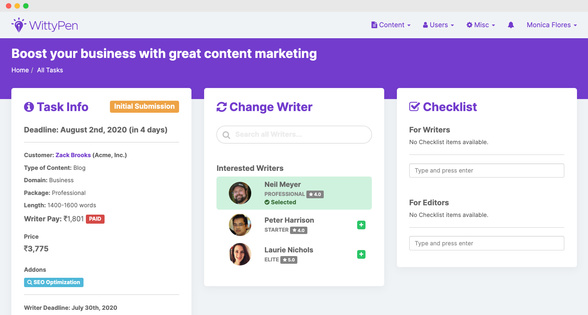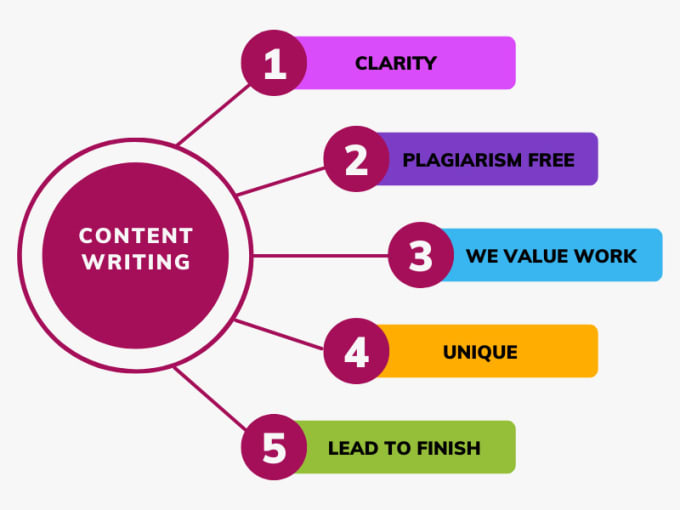Both copywriting and content writing serve marketing and content creation purposes in the digital space.
Generally, both terms are used interchangeably. When it comes to enhancing your online presence through effective content, the decision to hire an efficient, professional, and experienced writer becomes crucial.
However, the confusion lies in whether to hire a copywriter or a content writer; for many, both terms mean the same thing!
Let’s set the record straight right away—content writing and copywriting are not synonymous!
Copywriting uses a persuasive style for ads and emails, aiming to engage and prompt actions. On the other hand, content writing focuses on creating informative and engaging material to educate, entertain, or inspire, fostering collaborations and brand loyalty.
Read on as we take you through the major differences between these two to help you make informed decisions when choosing between a copywriter and a content writer for your digital needs.
The Words That Sell: Exploring Copywriting and Content Writing
Let’s look at the popularity of both professions in the modern digital world.
The global market for copywriting services is poised for significant growth, with a projected CAGR of 7.6%, enhancing the market from $25.29 billion in 2023 to an estimated $42.22 billion by 2030.
Concurrently, the content marketing industry is expected to witness substantial revenue growth, surpassing $135 billion by 2026.
Here is an analogy to clarify copywriting vs content writing that will help you understand the difference in the content created by both experts:
Take Nike’s slogan, “Just Do It,” as the epitome of copywriting—energizing consumers to take decisive action, showcasing the persuasive prowess inherent in this form of writing.
On the flip side, consider a captivating Instagram caption paired with a product photo as a prime example of the engaging and informative content that content writing delivers. It sparks interest, invites interaction, and goes beyond mere persuasion to boost genuine engagement.
Copywriting: Your Persuasion Powerhouse
Copywriting is the skill of using words to communicate convincingly and prompt action. It’s the secret weapon behind impactful advertisements, engaging emails, and persuasive product descriptions.
With copywriting, you can influence and guide your audience’s decisions by creating messages that resonate and inspire.
Proficiencies in Copywriting Expertise

Here are some significant characteristics of a Copywriter:
- Persuasive Tone: Copywriting employs language to influence the reader to take a specific action, utilizing techniques like storytelling and compelling arguments.
For example, Google Ad for a Fitness Brand: Get Fit Fast! Join Our Online Fitness Program Today.
- Targeted Call to Action: Effective copywriting includes clear and compelling calls to action. These are placed strategically throughout the content.
For example, “Buy Now” or “Download Now” are examples of calls to action
- Emotional Triggers: Copywriting considers the reader’s emotions. It uses storytelling and multimedia elements to create a strong emotional connection with the audience.
For example, let us look at how brilliantly the GHD brand has used storytelling, employing the art of emotionally connecting with people and empowering them:
A Few MythBusters to Explore
Myth 1 – We Can Indulge in DIY Copywriting
The Truth – While business owners may understand their products or services best, conveying this effectively through copy requires specialized skills and an understanding of audience psychology.
Myth 2- AI Copywriting is Better
The Truth – While AI tools can aid in generating initial drafts, they lack human emotion which is essential for compelling copywriting.
Myth 3- Embracing Complexity in Copy is Key
The Truth – Clear, concise language is more effective in copywriting, which enhances audience understanding and engagement.
Myth 4- Personalized Approach Can be Ignored
The Truth – Effective copywriting requires content creation for specific audiences, contexts, and objectives, emphasizing the importance of personalized messaging for desired outcomes.
Content Writing: Your Information Hub
Content writing is the art of crafting engaging and informative material for digital platforms designed to captivate audiences, add value, and achieve goals.
This includes writing:
- Engaging and long-form blog posts
- Informative articles
- Thoughtful website content
- Impactful social media posts
- Insightful email newsletters
Role of Content Writing in Building Brand Awareness, Trust, and SEO
Effective content writing can turn readers into leads and leads into customers, making the consistent creation of engaging content crucial for business success.
Here’s how:
- Content writing enhances brand awareness through the uniform communication of brand values across various channels, reinforcing brand identity.
- It creates emotional connections with the audience and highlights brand knowledge and thought leadership through insightful content.
- Content writers personalize content to address audience needs and challenges, strengthening connections and optimizing content for search engines.
- Develops a loyal audience by consistently offering valuable content that educates or entertains.
Proficiencies in Content Writing Expertise
Here’s what a typical list of proficiencies in content writing expertise might look like:
Versatility
Content writers adapt their writing style to suit diverse project requirements. They enhance their value by delivering versatile and impactful content. Thorough research is conducted for effective content writing that guarantees credibility and resonance with readers.
Thorough Understanding of SEO
A profound understanding of SEO principles is essential for content writers to create content effectively and drive visibility and engagement.
Follow Industry Trends
Content writing resonates with brand values and enhances content relevance and impact. Staying updated on industry trends and digital dynamics empowers content writers to remain relevant and deliver compelling content.
The Great Divide: Exploring the Key Differences
Let us start by referring to an example.
Notion, a SaaS, helps centralize your team’s workflow and processes in one platform, which is pivotal for increasing transparency. The brand has effectively used copywriting and content writing in various forms and is gaining benefits from it from all ends -higher ROI, customer attention, conversions, and a better brand reach.
The brand has diligently used copywriting for CTA, website pages, and social media platforms. An example is:
Notion has also brilliantly used content writing for its various blogs that have led to an optimized SEO and high rankings for the brand:
The table below simplifies the distinctions between these two types of writing:
| Points of Difference | Copywriting | Content Writing |
| Call to Action (CTA) | Copywriting includes clear and compelling calls to action (CTAs) that prompt the audience to take immediate action. Examples are “Buy Now,” “Sign Up Today,” or “Learn More.” | Content writing may include CTAs, but they are usually less direct. They focus on encouraging further engagement. |
| Target Audience | – Decision-Makers – Prospects in Sales – Targeted Demographics – Potential Customers – Audience with Immediate Needs | – Information Seekers – General Audience – Educational Seekers – Industry Professionals – Existing Customers |
| Tone of Writing | A professional and compelling tone. | The tone is primarily conversational or informative. |
| Writer Skills | – Persuasive writing – Understanding target audience – Headline creation – Adaptability – Strategic thinking | – Research skills – Organizational abilities – Search Engine Optimization knowledge – Aptitude for storytelling – Editing and grammar proficiency |
Hire Right: Finding Your Writing Dream Team
Confused about whether to engage a copywriter or a content writer? Consider the following:
When to Hire a Copywriter?
- A copywriter can craft effective content to highlight the unique selling points that can help you introduce a new product or service.
- If you want attention-grabbing ad content that drives clicks and conversions, hire a copywriter.
- If your website or landing pages are experiencing low conversion rates, a copywriter can help you enhance conversion rates.
When to Hire a Content Writer?
- Hire a content writer who can research and create high-quality blog posts, short or long-form articles, and guides.
- To enhance your website’s search engine visibility, hire a content writer who can develop SEO-optimized content.
- If you are having trouble maintaining active and engaging social media profiles, choose a content writer.
- A writer can produce diverse content formats and cater to different audience preferences.
Interview Questions that You Can Ask Before Hiring Content Experts

Consider these interview questions when hiring an SEO copywriter or content writer:
- Can you provide examples of your past content writing experience?
- Have you collaborated with brands similar to ours previously?
- How proficient are you in grammar?
- Do you offer services such as keyword research or content strategy?
- Which tools do you utilize for keyword research?
- How do you determine the effectiveness of a keyword for a website?
- Do you use SEO or content optimization tools?
Red Flags to Watch Out for When Hiring
- Lack of Portfolio: A concerning sign is when a copywriter doesn’t have a steady profile, as it’s used to showcase their previous work, client testimonials, and service offerings.
- Failure to Research: Similar to interviewing a potential employee, meeting with a copywriter involves assessing their ability to understand your business needs and marketing goals.
- Pressure for Long-Term Contracts: Be cautious if a content expert insists on signing a long-term contract immediately. Instead, reputable professionals often suggest starting with a short-term agreement or even a trial project.
- Lack of Professionalism: Effective communication is vital in remote collaborations. A Reliable expert responds promptly to inquiries, meets deadlines, and conducts themselves with professionalism in all interactions.
Wittypen’s Writer Vetting Process and Unique Strengths

In this age, good content is key for brands online. This is the reason implementing a thorough vetting process for selecting writers becomes essential.
Here’s how Wittypen goes about it:
- Rigorous Screening Procedure
- Emphasis on Brand Consistency
- Collaboration and Feedback Focus
- Customer-Centric Approach
- Innovation and Creativity
- Data-Driven Insights

Wittypen stands out in choosing writers who match the brand, work well together, and create excellent content.
By investing in skilled writers who not only mirror their brand values but also have the expertise to produce outstanding content, Wittypen makes sure their clients reach their digital goals and establish a powerful online presence.














